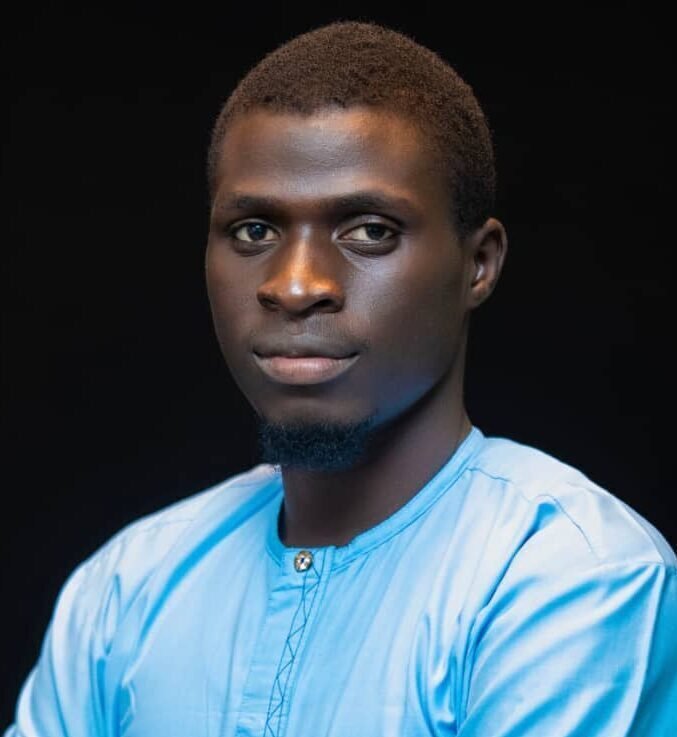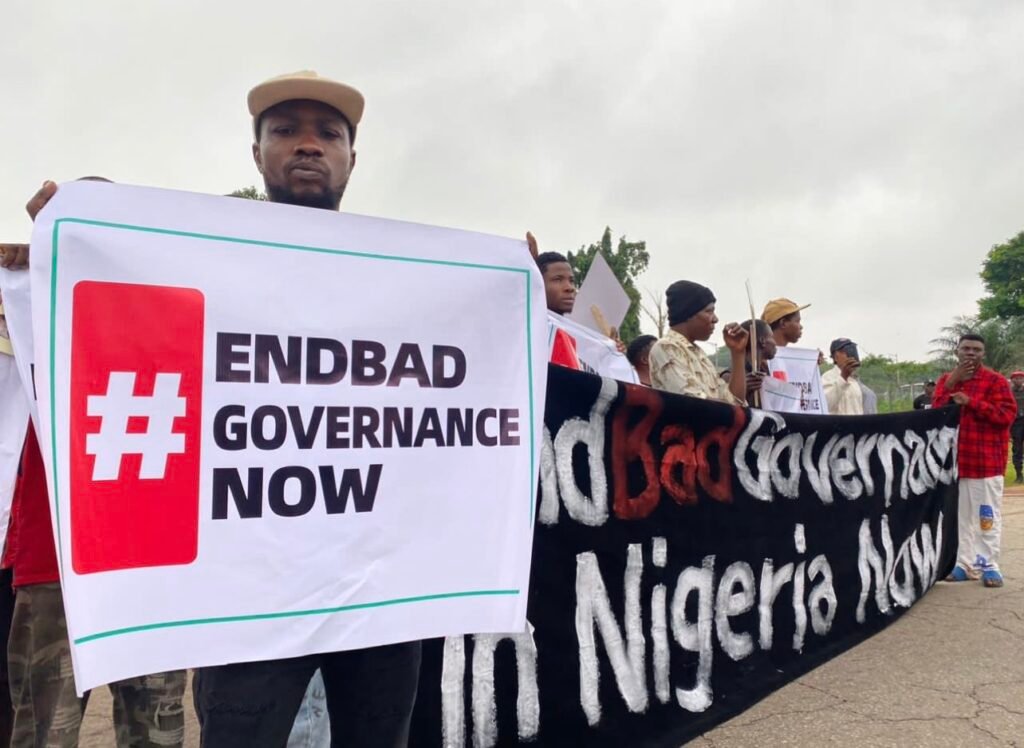As Nigeria faces serious economic turmoil and overwhelming prices of food items, demonstrators took to the streets in major cities across the country, beginning a ten-day nationwide protest with the hashtag #EndBadGovernance.
Fueled by the soaring inflation rate and high cost of living, the demonstrators have myriads of demands, including the 12 general demands they want the government to address. Abdulsalam Waliyulah, a resident of Osogbo, Osun State capital city lamented the unbearable hunger hovering across the country forced him to protest. He said if President Bola Tinubu’s administration could quench the blazing flames of hunger in the country, he would back off from the demonstration.
“We are seriously suffering,” he said. “We want the government to do the needful to address the hunger in the country. That is why I’m out to protest. We are not out to cause any violence. We are just there to demonstrate and express our concerns. So that the government can do the needful.”
While Abdulsalam and other protesters in Osogbo went about their demonstration peacefully, the situation was not all the same in other areas of the country. In Kano, protesters rallying under the ‘End Hunger,’ stormed a yet-to-be-commissioned building owned by the National Communications Commission.
Since President Bola Tinubu took over power in May 2023, the country has been grappling with an unprecedented level of inflation, soaring prices of essential commodities, including food items. Recent data by the National Bureau of Statistics (NBS) shows Nigeria’s food inflation rate stands at 40.1 percent, far exceeding the general inflation rate of 33 percent.
To cushion the effect of the soaring food prices, the Nigerian government approved a 150-day duty-free importation of major food items like rice, beans and wheat. This initiative, THE LIBERALIST explained, could be an effective response to the situation in the country and force down the prices of food items.
Despite Casualties, Protesters Vow to Continue
In some parts of the country, the first day of the protest on Thursday, 1 August, recorded brutal responses from the security operatives, with demonstrators beaten severely, teargassed, and some arrested. In Abuja, a female protester collapsed on Friday when running away from teargas smoke fired by the police to disperse demonstrators at the MKO Abiola Stadium.
According to a situation report by the United Action Front of Civil Society, a non-governmental organization that promotes good governance and democracy, no fewer than 21 protesters died in the cause of the protest and 1,154 arrested.
Muhammad Sanusi, a resident of Lafia, the Nasarawa state capital, said the blatant disregard of the suffering of poor Nigerians triggered him to demonstrate. Citing instances of the Nigerian government buying luxury cars for lawmakers, Sanusi felt President Bola Tinubu’s administration had turned deaf ears to the wailings of Nigerians.
Government reckless spending amidst over-aching hardship in the country triggered Nigerians like Sanusi and Adamu Halidu, a resident of Ilorin, Kwara State to join the protests. Sanusi said he is frustrated that the government removed subsidies without effective measures to cushion the effects of the removal.
Despite violence perpetrated in other cities like Kano, Kaduna and Maiduguri, Sanusi said he would continue to protest until the president comes outside to address the nation.
As the protest shifted to the fourth day, President Bola Tinubu addressed Nigerians on Sunday Morning for the first time since the protests began, urging protesters to suspend their ongoing demonstrations and embrace dialogue with the government.















